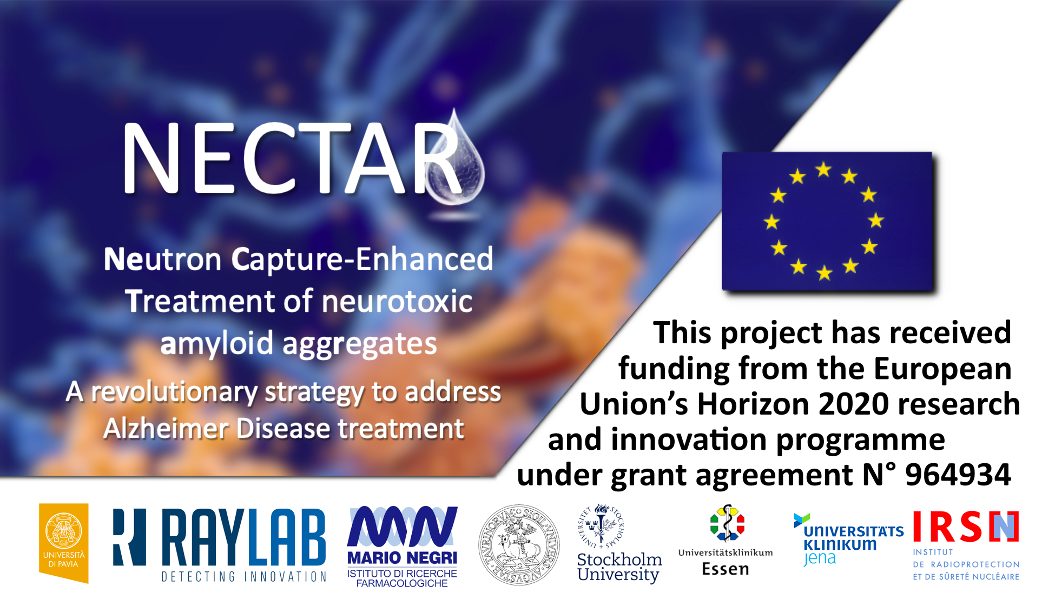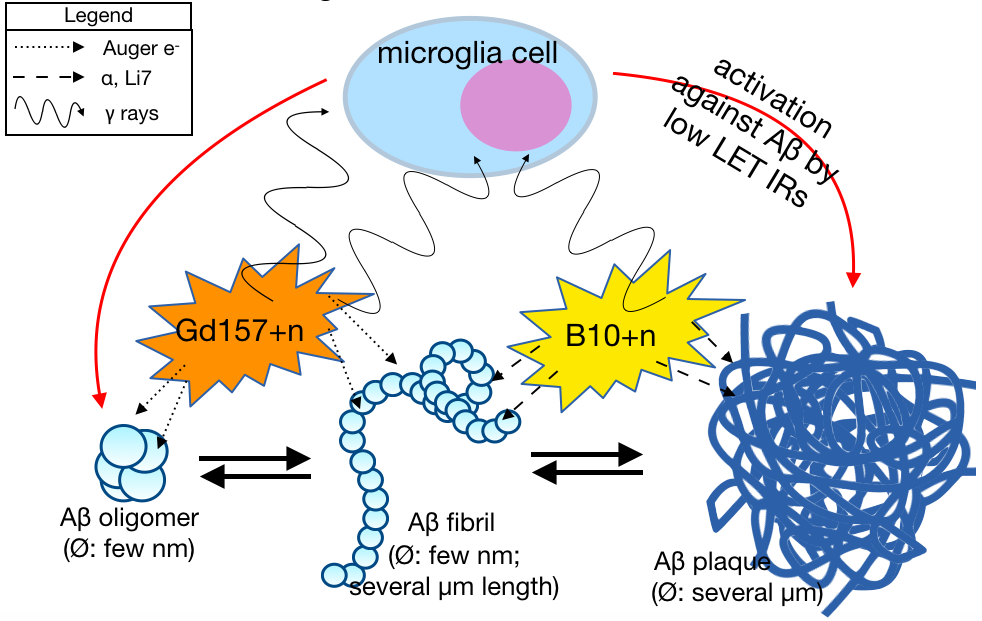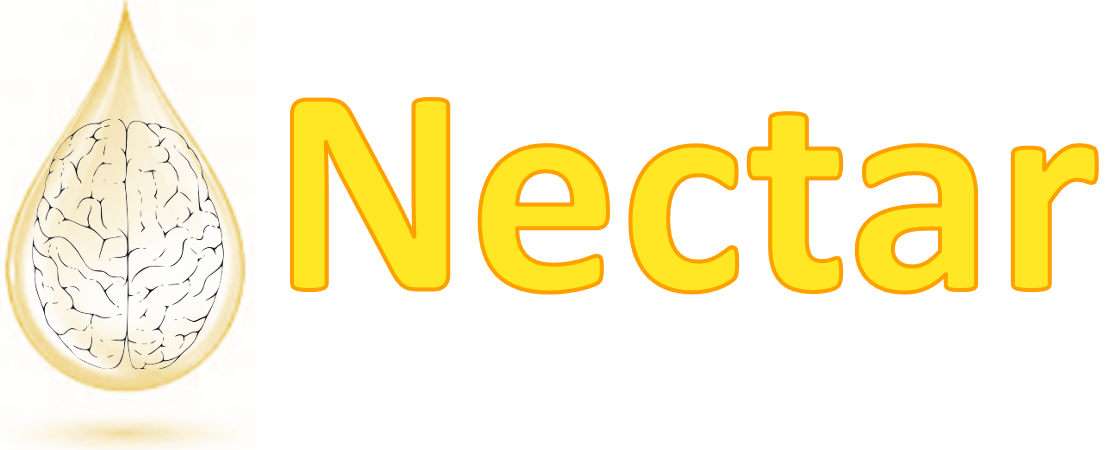A NECTAR AGAINST ALZHEIMER.
The "NEutron Capture-enhanced Treatment of neurotoxic Amyloid aggRegates" project.

NECTAR video designed and produced by S.Pasquato, RAYLAB solutions.
The majority of AD-modifying treatments are beta amyloid peptide (Aβ)-centric based on a strong faith in the “Aβ Cascade Hypothesis" and they are based on a drug-mediated targeting of amyloidogenic and non-amyloidogenic pathways. The etiological mechanisms underlying the neuropathological changes in AD remain unclear. Aβ is considered to be the main culprit of the neuropathological processes, characterised by a process of progressive aggregation: oligomers are the initial spheric stage of few nm diameter considered as the most toxic species and the best correlate of synaptic and cognitive dysfunction; they then develop into fibrils (“chains” of oligomers of several hundreds μm length and few nm diameter) which finally condensate into plaques of tens μm diameter.
NECTAR project proposes an alternative and revolutionary strategy to address AD,
investigating the safety,
feasibility and effectiveness of a Capture-Enhanced Neutron Irradiation (CENI)
to structurally damage Aβ aggregates,
exploiting capture agent vectors containing the stable isotopes B-10 and Gd-157 and specifically engineered
to selectively target the various forms of Aβ
aggregates and able to cross the intact BBB.
Thanks to the mixed high+low LET radiations field set in
correspondence of Aβ aggregates by the neutron irradiation, a bimodal treatment is expected to take place:
(i) a local depolymerisation of Aβ aggregates by the highly biological effective charged particles and
(ii) a long distance stimulation of the brain tissue by penetrating photons (prompt γ rays of Gd-157,
emitted by 31 Gd-157 reactions out of 100, and B-10, emitted by 94 B-10 reactions out of 100).

